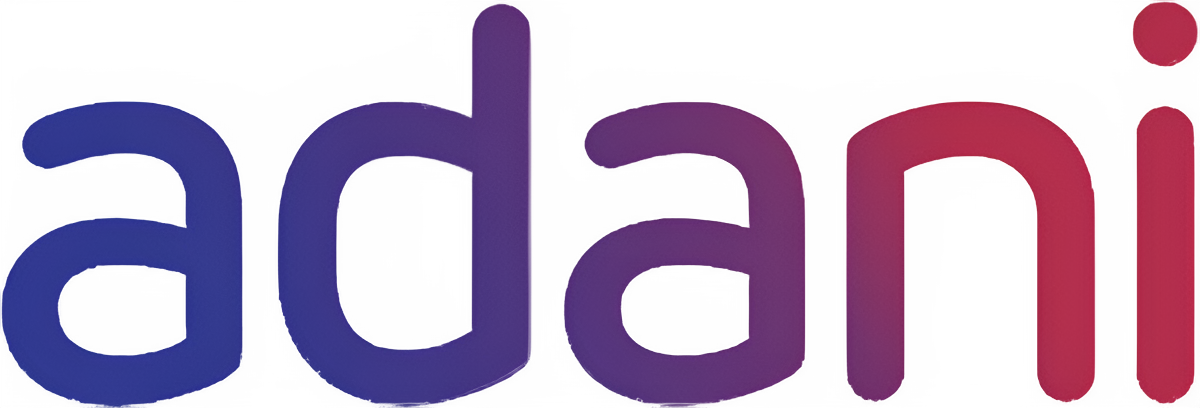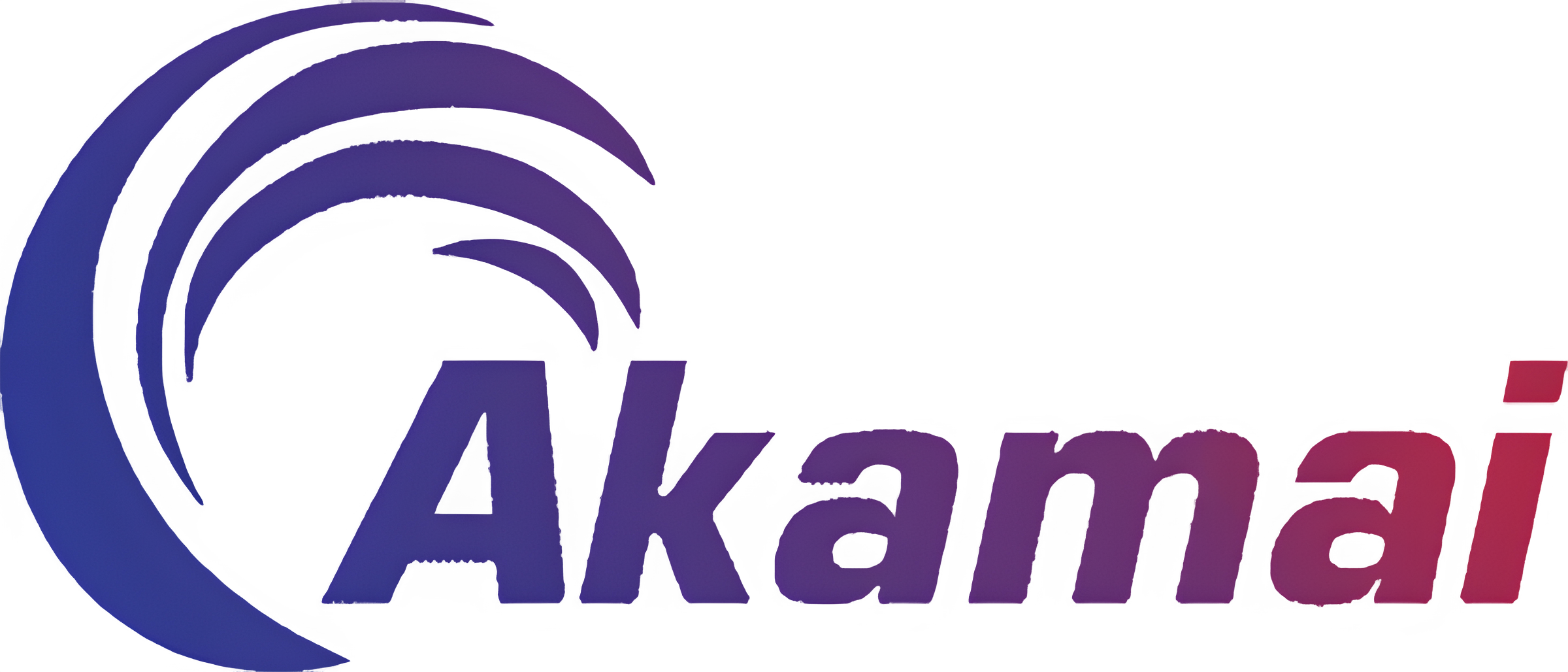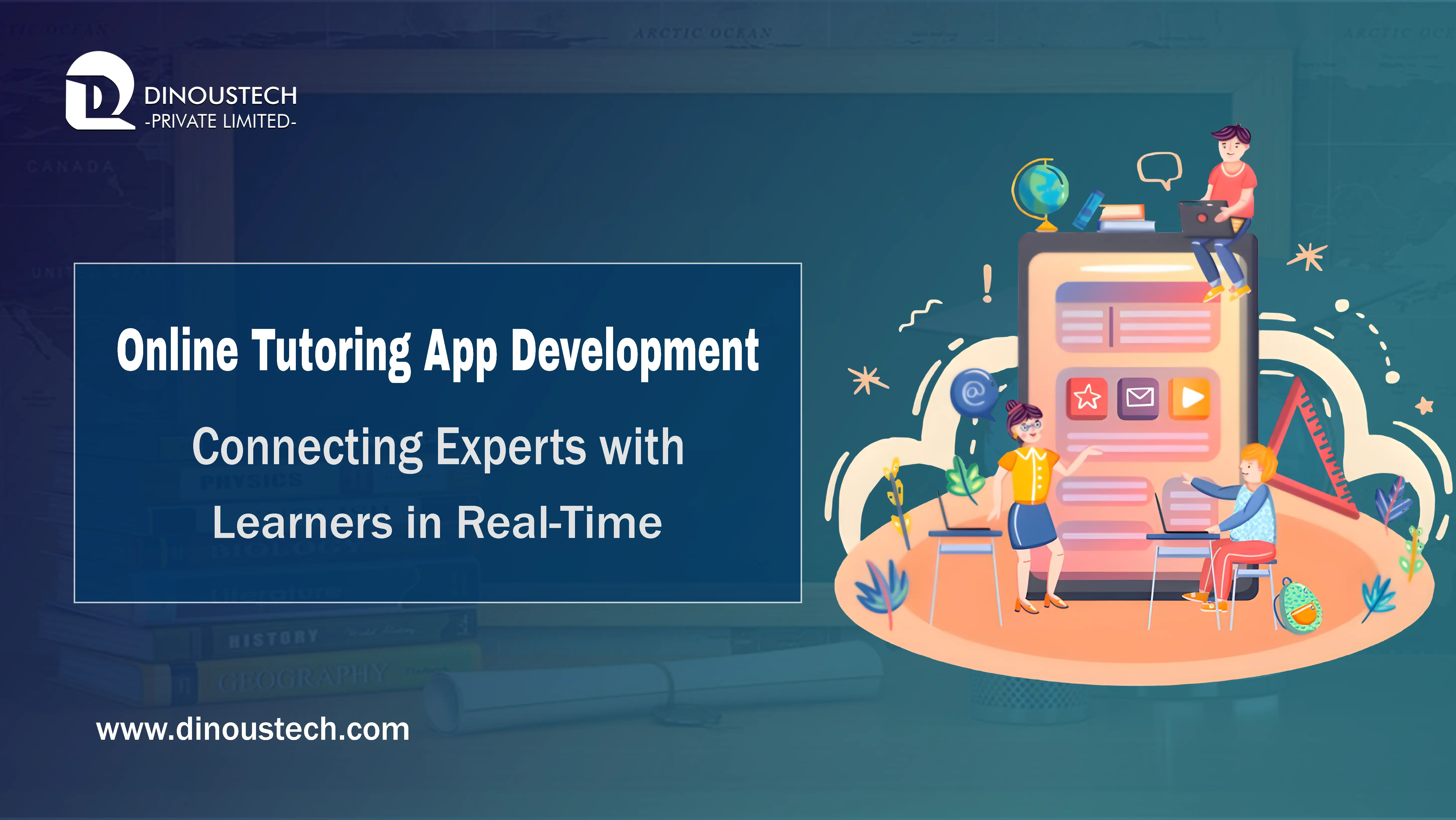Online Tutoring App Development: Connecting Experts with Learners in Real-Time
The demand for digital education has grown exponentially, driven by advances in mobile technology and the need for flexible learning solutions. In this context, tutoring app development has emerged as a powerful tool that connects skilled tutors with eager learners across geographical boundaries. From elementary school subjects to professional certifications, online tutoring apps enable real-time interaction, personalized learning pathways, and on-demand support. At Dinoustech, recognized as a best mobile app development company and best software development company, we specialize in creating robust, user-centric tutoring platforms. These apps not only foster educational outcomes but also create thriving communities where knowledge flows freely and instantly.
The Evolution of Online Tutoring
Traditional tutoring relied on in-person meetings and printed materials, often constrained by location and scheduling challenges. As internet connectivity improved and smartphones became prevalent, educators and technologists recognized the potential to deliver personalized instruction remotely. Early e-learning platforms offered recorded lectures and message boards, but real-time tutoring apps took this concept further by facilitating live video sessions, interactive whiteboards, and instant feedback. High-volume keywords such as “tutoring app development” and “online tutoring platform” reflect the market’s appetite for solutions that replicate classroom dynamics in digital form. Today, learners expect seamless integration of video, chat, and scheduling features—all accessible via mobile devices. An affordable web designing company working alongside a development team ensures that these platforms remain intuitive, visually engaging, and accessible to diverse user demographics.
Core Features of a Tutoring App
A successful online tutoring app must encompass features that address both learner and tutor needs. Real-time video conferencing is paramount, allowing students to see and hear their tutor while collaborating on an interactive whiteboard. Screen sharing and document uploads enable the exchange of study materials, problem sets, and multimedia resources. Integrated chat functions allow learners to ask questions outside of scheduled sessions, while push notifications remind them of upcoming lessons or homework deadlines. User profiles for tutors highlight qualifications, ratings, and availability, helping learners choose the best match for their educational goals. A robust calendar system synchronizes appointments, preventing scheduling conflicts and enabling both parties to plan effectively. By collaborating with a custom website development company, these functionalities can extend to a responsive web portal, allowing administrators to manage user accounts, track session histories, and generate performance analytics, thereby ensuring a comprehensive ecosystem.
Designing an Intuitive User Experience
For an online tutoring platform to succeed, user experience (UX) and user interface (UI) design are critical. A clean, minimalist layout reduces cognitive load, helping learners navigate the app with minimal friction. Key sections—such as tutor search, session booking, and payment—should be accessible within one or two taps. For instance, a prominent “Find Tutors” button on the home screen immediately directs users to a searchable list of educators filtered by subject, price, and rating. Lesson interfaces incorporate large, legible text and responsive buttons to ensure that interactive whiteboard tools function smoothly, even on smaller screens. An affordable web designing company collaborates with UX researchers to conduct usability testing, refining color schemes, typography, and iconography to accommodate learners with varying levels of digital literacy. Consistent branding—through logos, color palettes, and tone of voice—reinforces credibility and professionalism, building trust among users.
Also Read: - 10 Essential Features Every Education App Needs in 2025
Technology Stack Selection
Choosing the right technology stack forms the backbone of any scalable online tutoring solution. On the frontend, cross-platform frameworks like React Native or Flutter expedite development for both iOS and Android while maintaining near-native performance. For web components, React.js or Angular facilitates dynamic, responsive interfaces. On the backend, microservices architectures in Node.js or Python (Django/Flask) support modular development, enabling independent scaling of video, chat, and scheduling services. Real-time communication relies on WebRTC or specialized APIs, such as Twilio or Agora—to handle low-latency audio and video streaming. Cloud services like AWS, Google Cloud, or Azure offer managed database services (PostgreSQL, MongoDB) and serverless functions for event-driven tasks like sending session reminders. By partnering with the best software development company, businesses can ensure their tutoring app’s infrastructure remains robust, cost-effective, and adaptable to user demand.
Integrating Real-Time Video and Collaboration Tools
Real-time video is the cornerstone of any online tutoring app, replicating face-to-face interaction and fostering student engagement. Implementing WebRTC frameworks or leveraging third-party SDKs—such as Zoom SDK, Jitsi, or Vonage—enables high-quality, peer-to-peer video sessions with minimal latency. An interactive whiteboard feature, built on Canvas API or WebSocket-powered collaboration libraries, allows tutors and learners to draw, annotate, and solve problems together in real time. File-sharing modules support document uploads—PDFs, presentations, or images—so that study materials can be referenced instantly during lessons. Screen sharing enhances the tutorial experience by enabling tutors to demonstrate software usage, coding exercises, or design principles directly on the student’s screen. Integrating these tools requires meticulous synchronization and bandwidth optimization to prevent lag or dropped frames. At Dinoustech Private Limited, we ensure that video infrastructure scales dynamically, providing seamless sessions even when user numbers spike.
Scheduling and Calendar Management
Effective scheduling is crucial for a smooth online tutoring experience. A calendar system should allow tutors to define their availability—selecting time slots, setting break periods, and indicating preferred session lengths. Learners browsing tutor profiles can see real-time availability indicators—green for open slots, red for booked times. Upon selecting a slot, the app generates a confirmed booking and sends an email or push notifications to both parties. Integration with external calendars—Google Calendar, Outlook, or iCal—automatically syncs sessions, preventing double bookings. Automated reminders minimize no-shows, notifying users 24 hours and one hour before a session. If a learner needs to reschedule, a simple drag-and-drop interface in the calendar view allows for quick adjustments, sending updated notifications accordingly. By building these features in collaboration with the best mobile app development company, the scheduling module remains responsive, intuitive, and reliable across devices.
Must Read: - A Step-by-Step Guide to Developing an Educational App in 2025
Payment Processing and Monetization
Seamless payment processing enhances user trust and streamlines revenue collection for tutors and platform owners. Integrating with secure payment gateways—Stripe, PayPal, Razorpay, or regional options—enables learners to pay for individual sessions, subscription packages, or bulk lesson bundles. Transparent pricing structures—such as hourly rates, tiered packages, or discounted multi-session plans—are displayed directly on tutor profiles, helping learners make informed decisions. Exploring tutoring app development best practices, in-app wallets can store prepaid credits, automatically deducting balances upon session completion. For platforms running subscription models, recurring billing cycles handle payments automatically, reducing administrative overhead. Advanced features like escrow services—where funds are released to tutors only after session completion—build trust and prevent disputes. Dinoustech’s financial experts ensure PCI-DSS compliance, encrypting sensitive data and implementing fraud detection measures to protect both users and revenue streams.
Security and Data Privacy
Online tutoring apps handle sensitive personal information—names, contact details, payment credentials, and potentially minors’ data—necessitating robust security and data privacy measures. End-to-end encryption of video sessions prevents unauthorized eavesdropping, while TLS/SSL protocols secure data in transit. Educator and learner credentials are hashed and salted using secure algorithms (bcrypt or Argon2) to prevent data breaches. Role-based access controls ensure that only authorized users can access specific modules—tutors manage their profiles and earnings, while learners view session history and progress reports. Adherence to data protection regulations—such as GDPR in Europe, CCPA in California, or local privacy laws—requires transparent privacy policies, user consent flows, and mechanisms for data deletion upon request. Dinoustech’s security teams conduct regular vulnerability assessments and penetration tests, ensuring the app remains resilient against emerging threats and maintains user trust.
UX/UI Best Practices for Tutoring Apps
A visually appealing, easy-to-use interface enhances user engagement and retention. Working with an affordable web design company, designers focus on a clean, distraction-free layout that directs attention to key functions—finding tutors, booking sessions, and managing payments. A well-organized dashboard presents upcoming lessons, recent session summaries, and quick-access buttons for starting a live class. Interactive elements—such as hover states on buttons, subtle animations during page transitions, and responsive feedback—create a polished experience without compromising performance. Dark and light mode options cater to user preferences, improving accessibility during long study sessions. Additionally, color-coded progress indicators—showing completed lessons, pending homework, and overall learning milestones—motivate learners to stay on track. At Dinoustech, our UX researchers collaborate with target users—students, parents, and tutors—to gather feedback and iterate designs, ensuring the app remains intuitive and engaging.
Also Read: - Build a Microlearning App: Bite-Sized Education for the Mobile Era
Marketing and User Acquisition Strategies
Launching an event booking app—or in this case, a tutoring platform—requires a comprehensive marketing plan to drive downloads and build a user base. Search Engine Optimization (SEO) and App Store Optimization (ASO) focus on high-volume keywords like “online tutoring app,” “live tutoring platform,” and “tutoring app development” to capture organic traffic. Social media campaigns on Facebook, Instagram, and LinkedIn highlight success stories—student testimonials, tutor spotlights, and achieved learning outcomes—to build credibility. Content marketing—blog posts on “tips for online tutoring success” or “how to choose the right tutor”—drives organic traffic to landing pages managed by a custom website development company. Influencer partnerships with educators, parenting bloggers, and ed-tech thought leaders expand reach. Paid advertising—Google Ads, Facebook Ads, or YouTube pre-rolls—targets demographic segments likely to engage with tutoring services, such as parents of school-age children or adult learners seeking skill upgrades. Referral programs incentivize existing users to invite friends, offering free sessions or discounts for successful sign-ups. Dinoustech’s marketing experts tailor these strategies to specific markets, optimizing campaigns based on data-driven insights.
Monetization Models and Growth Opportunities
Effective monetization models hinge on balancing user value with sustainable revenue. Common approaches include commission-based models, where the platform retains a percentage of each tutoring fee, and subscription plans that grant learners access to a certain number of monthly sessions at a discounted rate. Freemium models offer basic features, like limited free trial sessions, while premium tiers unlock advanced capabilities such as group classes, specialized study materials, or 24/7 tutor access. Corporate partnerships allow organizations to purchase bulk tutoring credits for employee skill development or academic support programs. Marketplaces can offer add-on paid services, such as resume reviews, career coaching, or test preparation workshops, broadening revenue streams. Dinoustech’s growth strategists analyze market trends and user behavior to recommend optimal pricing structures and expansion tactics, ensuring your platform captures both consumer and institutional segments.
Scalability and Performance Optimization
As user numbers grow, ensuring that the app scales without compromising performance is crucial. Dinoustech recommends deploying backend microservices on cloud platforms—AWS, Google Cloud, or Azure—with auto-scaling policies to adjust compute resources dynamically. Containerization with Docker and orchestration via Kubernetes enables individual services, such as video streaming, chat, and scheduling, to scale independently. Caching layers—using Redis or Memcached—accelerate frequently accessed data, such as tutor lists or session history. Content Delivery Networks (CDNs) distribute static assets—lesson videos, profile images—across global nodes, minimizing latency for users in different regions. Monitoring tools—such as Prometheus, Grafana, or New Relic—provide real-time insights into CPU usage, memory consumption, and API latency, allowing teams to identify and resolve performance bottlenecks before they impact users. By architecting for high concurrency and fault tolerance, Dinoustech ensures that your tutoring platform remains responsive, reliable, and capable of handling peak demand.
Must Read: - How to Make eLearning App Like BYJU’S or Unacademy
Post-Launch Support and Continuous Improvement
Launching a tutoring app is only the beginning; ongoing maintenance and iterative enhancements are essential for long-term success. After deployment, Dinoustech’s support teams monitor system health—server uptime, database performance, and error logs—addressing issues proactively. Regular security audits and software updates close vulnerabilities and keep dependencies current. Feature enhancements—such as integrating AI-driven tutoring analytics, adaptive learning paths, or new subject areas—keep the app relevant and engaging. User feedback mechanisms—such as in-app surveys and community forums—surface pain points and feature requests, guiding product roadmaps. Data-driven decision-making, fueled by analytics dashboards, reveals usage patterns: which subjects are most in demand, peak study times, and tutor performance metrics. Continuous improvement cycles ensure that the platform evolves alongside educational trends, delivering maximum value to both learners and educators.
Conclusion
Online tutoring app development presents a tremendous opportunity to revolutionize education by connecting learners with expert tutors in real time. By incorporating features such as live video sessions, interactive whiteboards, scheduling systems, and secure payment gateways, a well-designed platform fosters personalized, flexible learning experiences. Critical to success are intuitive UX/UI designs, crafted by an affordable web designing company, and a scalable technology stack, built by the best software development company, with mobile components handled by the best mobile app development company. At Dinoustech Private Limited, we bring together cross-functional expertise, encompassing custom website development, quality assurance, and post-launch support, to build robust tutoring solutions that meet both user expectations and business goals.
Whether you aim to launch a niche tutoring service focusing on test preparation or a comprehensive marketplace spanning K–12 subjects through professional certifications, partnering with Dinoustech ensures that your app stands out in a competitive market. Embrace the future of education by delivering on-demand tutoring, fostering lifelong learning, and unlocking new opportunities for learners and tutors alike.

















